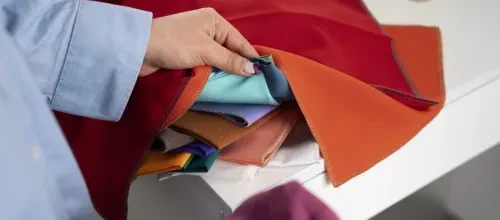
Preflex is a company that manufactures and markets resins, adhesives, and coatings for the paint, packaging, wood, textile, and graphic arts industries.

In the textile industry, the production process is complex and multifaceted, and each stage plays a fundamental role in ensuring that the final product meets the required quality standards.
An essential part of this process is the use of textile auxiliaries, specialized chemicals that improve various properties of the materials and optimize their performance during the production phases.
From fabric preparation to finishing, textile auxiliaries are key to achieving more resistant, durable, and aesthetically appealing fabrics.
Textile auxiliaries are chemicals used in various yarn and fabric processes.
These products are applied to improve certain properties of fabrics and to facilitate the spinning, weaving, and manufacturing processes, ensuring high-quality clothing.
Textile auxiliaries can include detergents, levelers, buffers, fixatives, softeners, resins, and other textile auxiliaries that enhance their quality.
This not only improves color intensity, but also increases its resistance to fading, washing, and exposure to light. This is vital for products such as clothing and household textiles that are subject to constant use.
The use of textile auxiliaries in the industry is essential to improving the quality of the final product.
From softness and strength to color stability and advanced functionality, these chemicals play a crucial role in the success of textiles in the marketplace.
As the industry evolves toward more sustainable and efficient processes, textile auxiliaries continue to be an indispensable tool for achieving innovative, high-quality products.
At Preflex, we are committed to offering advanced solutions in resins and textile auxiliaries that optimize each stage of the production process. Our goal is to support companies in the textile sector in increasing the quality and performance of their products.
We develop sustainable, high-performance solutions that enable the textile industry to innovate and stay ahead in a constantly evolving market.